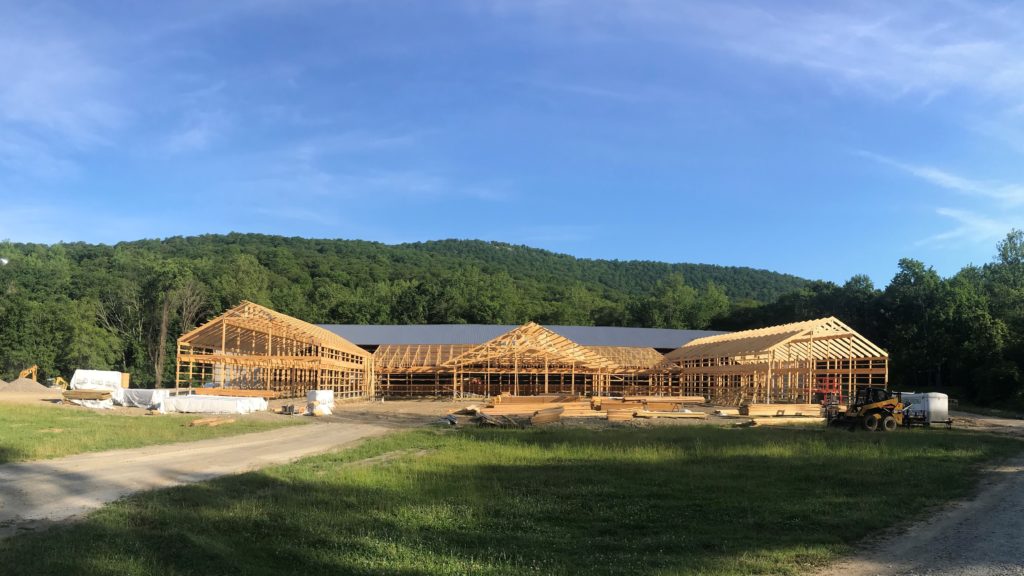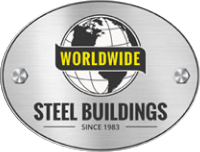« Blog Home
Understanding the Different Types of Building Permits

Starting the journey of constructing a metal building is an exciting endeavor, but it comes with a variety of regulations, codes, and permits to navigate. Whether you’re envisioning a commercial building, a single-family home, or an agricultural structure, understanding the specific zoning regulations, building codes, and building permits required for metal buildings is essential. This guide aims to illuminate the complex world of metal building permits, empowering you to confidently navigate the process.
Building Codes for Metal Structures
When it comes to constructing steel buildings, adhering to building codes is crucial to ensure structural integrity and public safety. Steel buildings are designed to withstand extreme weather conditions, fires, and other challenges, making them a reliable and environmentally sustainable choice. Understanding local building codes is a key aspect of a successful project, whether it’s adding a steel structure to your residential property or a commercial construction project, such as an industrial warehouse.
What are Building Codes?
Building codes are regulations established to uphold safety standards in construction projects. These encompass everything from structural integrity to electrical systems, covering every aspect of safe and habitable structures. Public safety is the foremost concern behind these codes, which are created and updated by the International Code Council (ICC).
These regulations are applicable not only to homes but also to commercial buildings, public spaces, and large gathering structures. Because building codes vary from one jurisdiction to another, it’s essential for homeowners, builders, and developers to familiarize themselves with local requirements before commencing any construction work to prevent costly mistakes down the line.
Understanding Different Building Codes
- Structural Codes: Engineers design structural codes to withstand extreme weather events, including wind loads and appropriate snow loading. Load requirements are determined by the climate and weather patterns of a specific area.
- Energy Codes: Similar to other types of structures, steel buildings are subject to energy codes that include insulation requirements. Different insulation standards apply to metal construction compared to wood or concrete materials.
- Other Building Codes: Each state imposes various code restrictions covering aspects such as electrical work, plumbing, mechanical systems, and fire safety. Familiarizing yourself with these codes and permitting processes is crucial before investing in a steel building.
Decoding Building Permits and Their Significance
Building permits serve as an official authorization granted by local municipalities, allowing you to proceed with the construction, modification, or expansion of a structure. This can encompass all manner of projects, from demolition to new building construction, from moving retaining walls to a full interior remodel. These permits act as a safeguard, ensuring that projects adhere to safety codes, zoning laws, and a host of other regulations. The type of permit you need depends on the nature and scale of your metal building project.
Commercial Building Permits vs. Residential Building Permits
Commercial Building Permits: A commercial building permit is essential for structures designated for commercial activities, including retail stores, warehouses, or self-storage centers. If your project involves erecting metal structures for these purposes, obtaining a commercial building permit is a necessity.
Residential Building Permits: For those planning to construct metal homes or barndominiums, a residential building permit is mandatory in most places. This permit applies to structures designed for residential purposes, ensuring safety and adherence to regulations. Certain alterations might not require permits, such as minor roof replacements or minor additions.
Types of Metal Building Permits
There are a range of building permits that may be applicable to your specific project. When planning a project, it’s important to consult with your project manager or construction team to ensure the right permits are planned for. If you’re taking on this project yourself, consult with the local laws to understand the range of permits you’ll need before starting your project. Below is a list of some permits to expect, but this may vary depending on your location and your project.
1. New Construction Permits
If you’re considering building from the ground up, a new construction permit stands as the foundational requirement. This permit serves as the green light for erecting a new building from scratch and typically involves a rigorous review of architectural plans and engineering specifications.
2. Remodeling and Renovation Permits
When significant alterations are planned for an existing building, remodeling permits come into play. These permits are indispensable for modifications that impact the building’s layout, structural integrity, or its various systems, such as plumbing and electrical. By requiring these permits, authorities ensure that the planned alterations meet safety and code standards.
3. Occupancy Permits
Occupancy permits signify the readiness of a new construction or a renovated building to be inhabited. Authorities conduct thorough inspections to ensure the structure aligns with all applicable codes and regulations before granting this permit. It’s the official stamp of approval that your space is safe and habitable.
4. Electrical and Plumbing Permits
Projects involving electrical or plumbing work typically demand specific permits. An electrical permit is essential for activities ranging from installing wiring to adding power outlets, while a plumbing permit is necessary when modifying plumbing systems. These permits ensure that these critical systems are installed or altered in compliance with safety and functionality requirements.
5. Accessory Structure Permits
For smaller metal structures like sheds, carports, or storage units, an accessory structure permit might be required. Even though these structures are smaller in scale, they still need to meet safety standards and zoning regulations.
6. Foundation and Structural Permits
When constructing a metal building, ensuring a solid foundation is vital. You might need specific permits for tasks like excavating, pouring concrete, or installing the metal building’s foundation. Additionally, structural permits ensure that the framework of your metal building meets the necessary codes and specifications.
Steps to the Permit Process
The requirements for a permit can vary from location to location and typically have a permit fee. At a high level, getting a building permit (or permits) involves the following steps:
1. Application Submission: Kickstart the process by submitting a comprehensive building permit application that details the scope, location, and intricacies of your project.
2. Plan Review: Regulatory authorities conduct a meticulous review of your building plans, ensuring they adhere to various regulations. This review involves multiple departments, such as zoning, structural engineering, and fire safety.
3. Permit Issuance: Once your plans successfully navigate the review process, an issued permit is granted, signifying the official permission to initiate construction.
4. Inspections and Compliance: Throughout the construction process, inspections will be conducted at various stages to ensure that the work aligns with the approved plans and codes. This may include inspections of the foundation, framing, electrical systems, and more.
Building Your Vision, Step by Step
Taking on a construction project, whether big or small, is a complex adventure. With a good understanding of different types of building permits, you’re ready to navigate the ins and outs of permits. From making sure the structure is strong to following zoning rules, each permit shapes how your project turns out.
While the world of permits and regulations can appear overwhelming, resources like those offered by Worldwide Steel Buildings can serve as invaluable guides. As you work towards your construction goals, remember that the right permits make your project smooth and successful.
Are you ready to transform your construction vision into reality? Explore the possibilities with Worldwide Steel Buildings and ensure your project is built on the foundation of knowledge and expertise. Let’s make your construction dreams a reality together!




